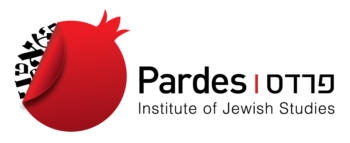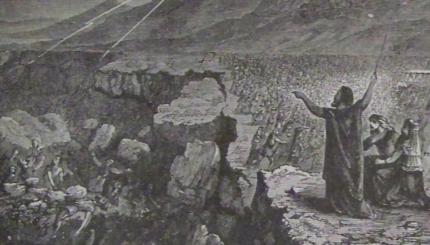Commentary on Parashat Shoftim, Deuteronomy 16:18-21:9
Questions
1. The parashah begins with the words “Shoftim” and “Shotrim.” Who were the shotrim and what was their job?
2. This parashah contains the famous phrase: “justice, justice, thou shall pursue.” What rewards are promised for following this mitzvah?
3. This parashah tells us about four kinds of leaders among the people of Israel. Who were they?
With your help, My Jewish Learning can provide endless opportunities for learning, connection and discovery.
4. The children of Israel were told that when they came into the Land, they would have a king. Who was to choose the king and who was automatically eliminated from consideration?
5. What were four things the king was forbidden from doing?
6. What was the king commanded to do?
7. What were the Levites not allowed to have a portion of? What was their inheritance?
8. How does the parashah explain the need for prophets and prophecy?
9. At least four categories of males were not required to go into battle. What were they?
10. What was the difference in how the children of Israel were to treat defeated enemies who lived within the Land of Israel and those living outside the Land? Why did God differentiate?
11. If a person was murdered and the murderer was unknown, who decided which city had to take responsibility? What were the elders of the responsible city to do?
Answers
1. They were the officers of the court and they enforced the sentences of the judges. (16:18)
2. The Torah promises that people who pursue justice will live and inherit the land God gave them. (16:20)
3. Judges, priests, king, and prophets.
4. God would choose someone who was not a foreigner to be king. (17:14-15)
5. The king was not allowed to have too many horses for going to war; cause the people to return to Egypt; have too many wives; or accumulate large amounts of gold and silver. (17:16-17)
6. He was to copy God’s law in a book (a Torah). (17:18)
7. The Levites did not inherit any land in Israel. God was their inheritance. (18:1-2)
8. The people were afraid to receive God’s word directly, so He had to speak through intermediaries, the prophets. (18:15-16)
9. Someone who had built a new house and not dedicated it; someone who had planted a vineyard and not yet used the fruit yet; someone who had betrothed a wife, but not yet consummated the betrothal; someone who was afraid to go to battle. (20:5-8)
10. For those living outside the Land, the children of Israel were to proclaim peace to the city. If the people refuse, Israel was to besiege the city and when God gave the city over, Israel was to kill every male. The women, children, and cattle were to be taken as spoils. Those living within the Land who were defeated were to be totally destroyed so that Israel would not follow their way of life. (20:11-14)
11. The elders and judges had to take responsibility. The elders were to take a heifer of the herd (which had never been under a yoke) to a rough valley (which had not been plowed or sown), and break the heifer’s neck; the priests would proclaim their innocence over the heifer and ask God for atonement, and then all the elders of the city would wash their hands over the heifer. (21:1-6)
Provided by the Pardes Institute of Jewish Studies.

Torah
Pronunced: TORE-uh, Origin: Hebrew, the Five Books of Moses.


